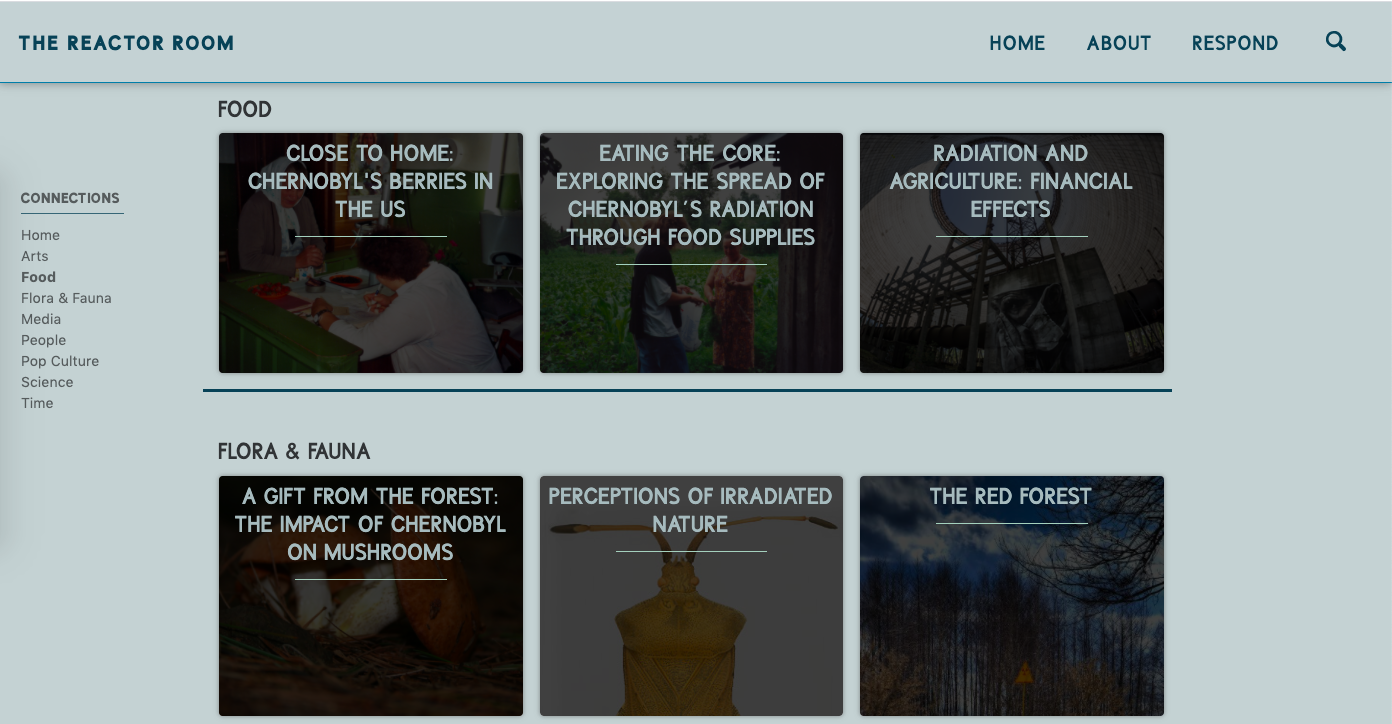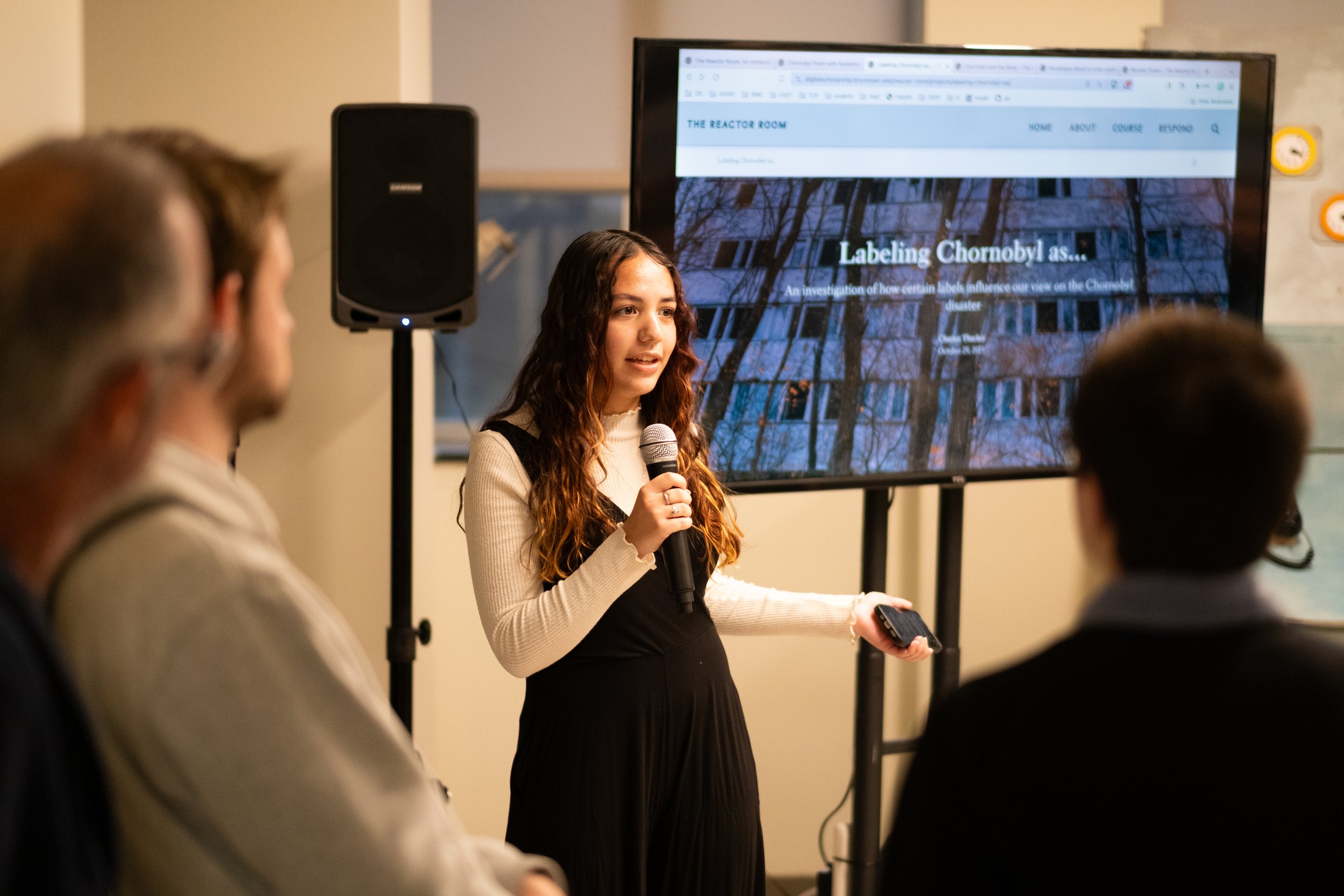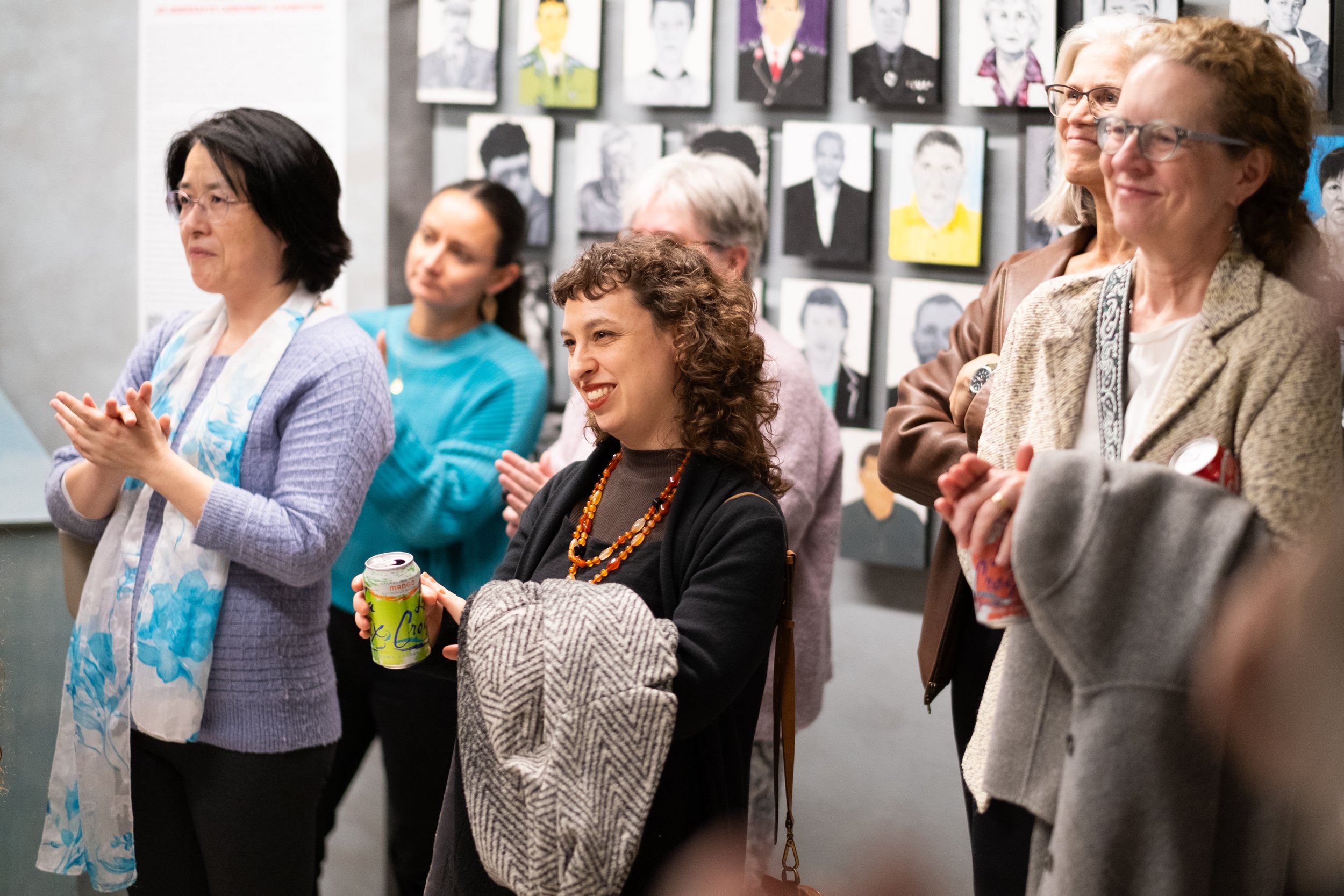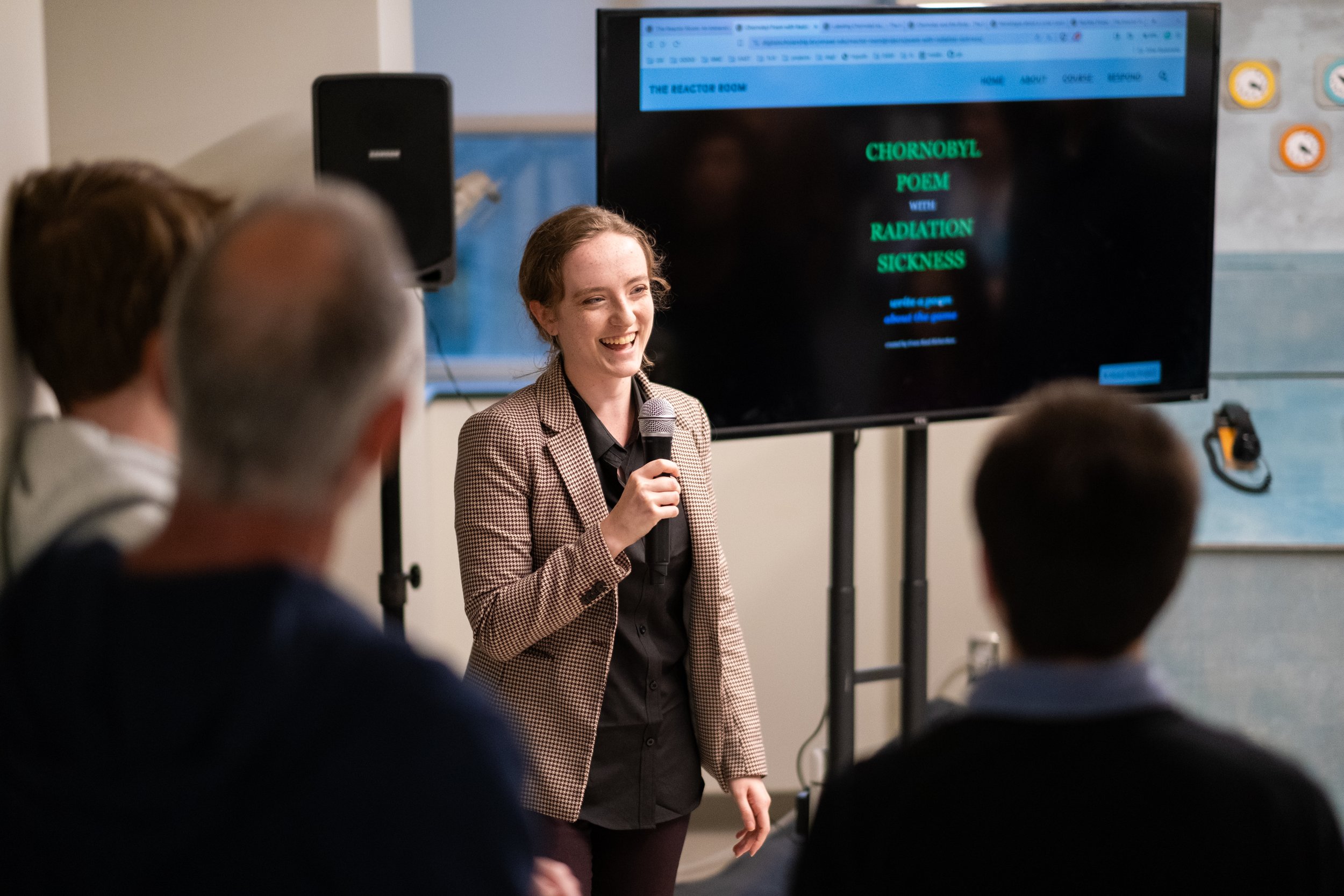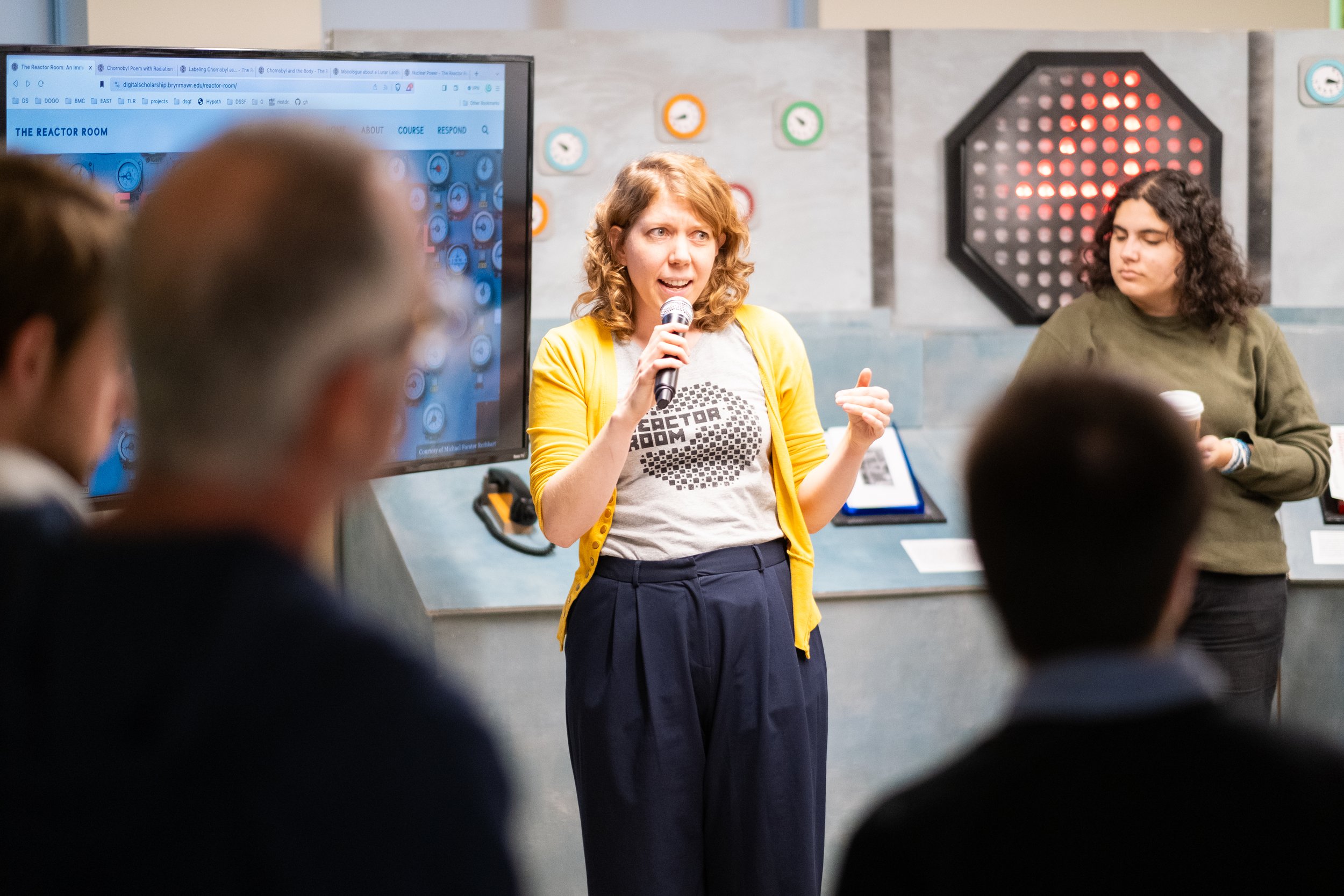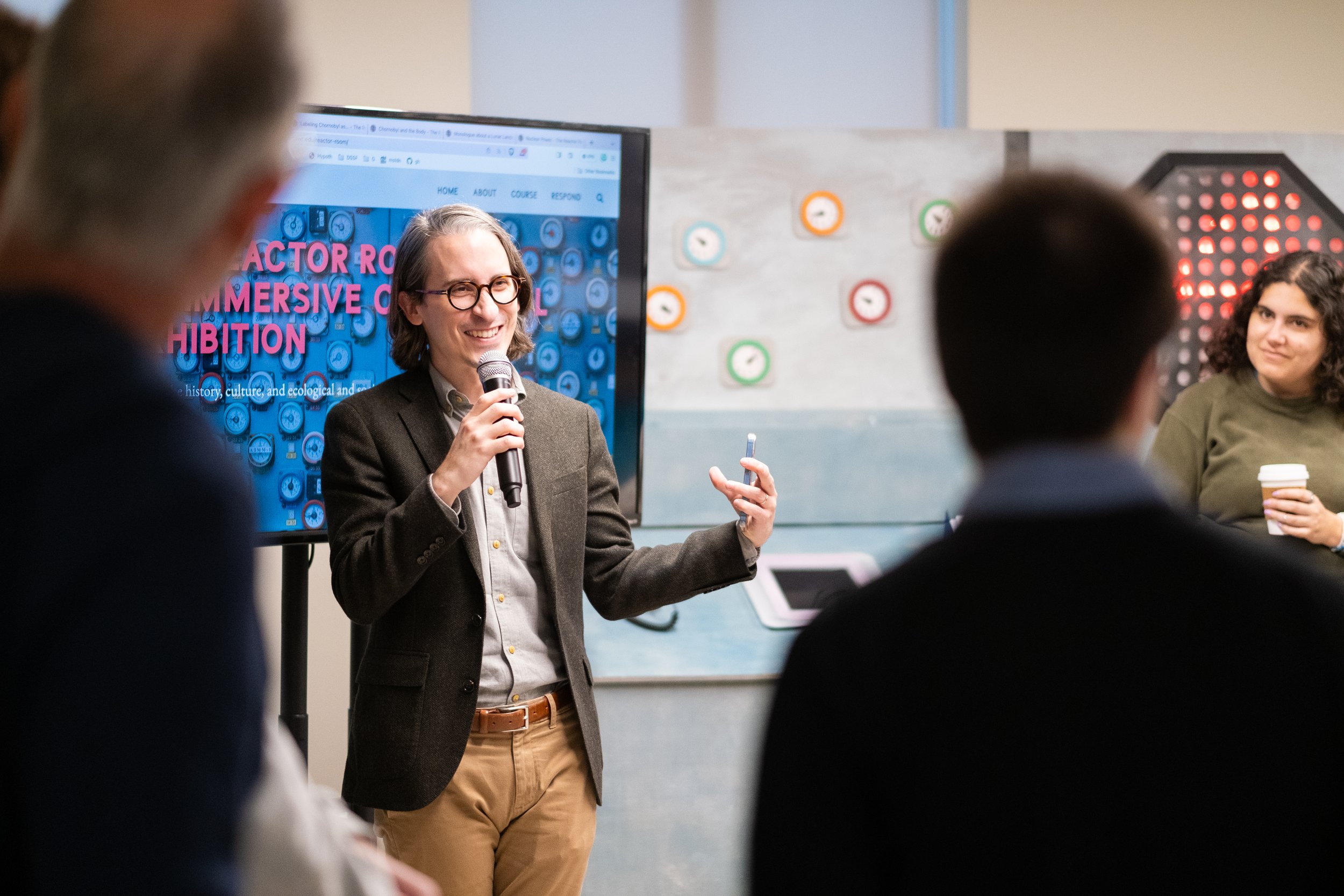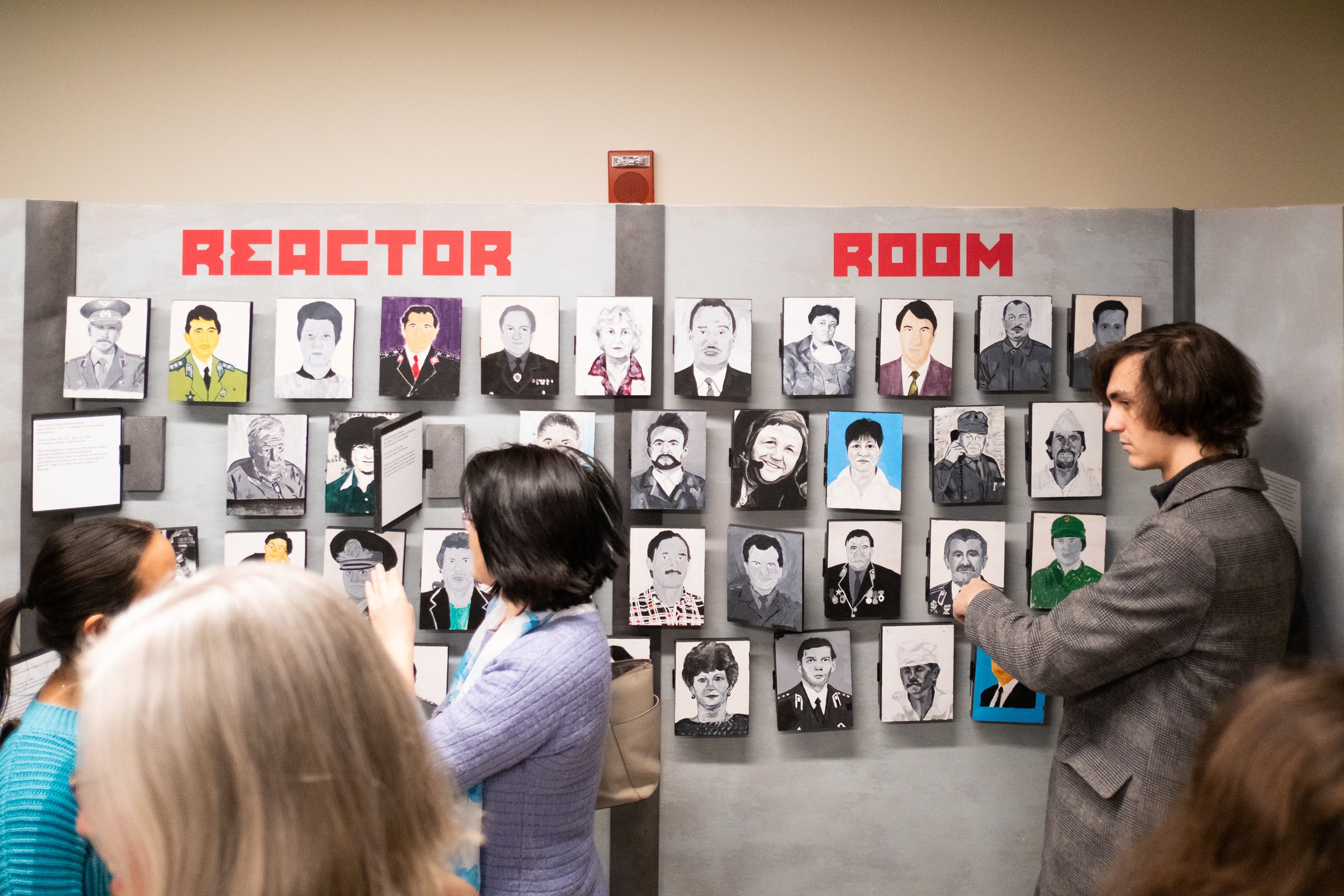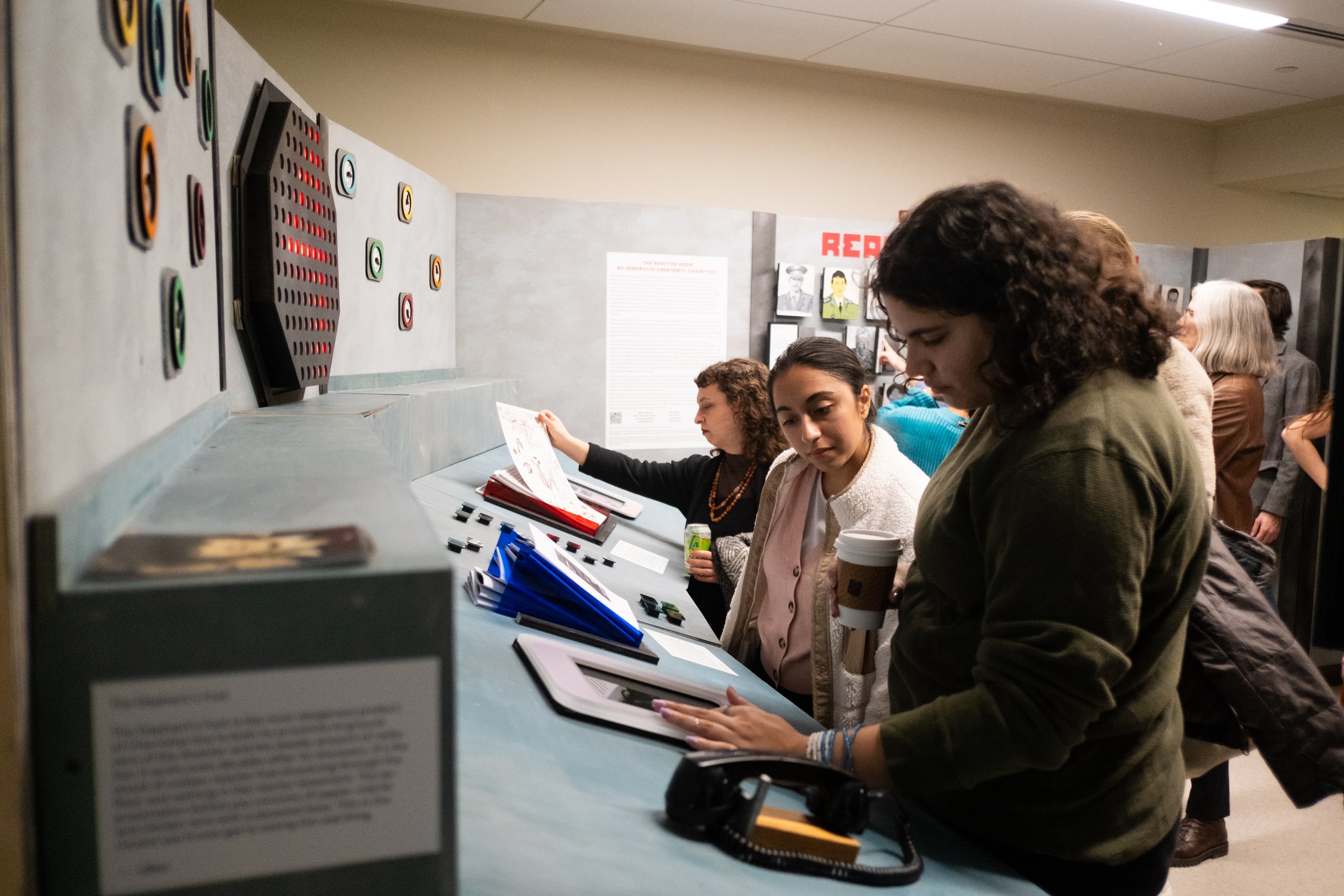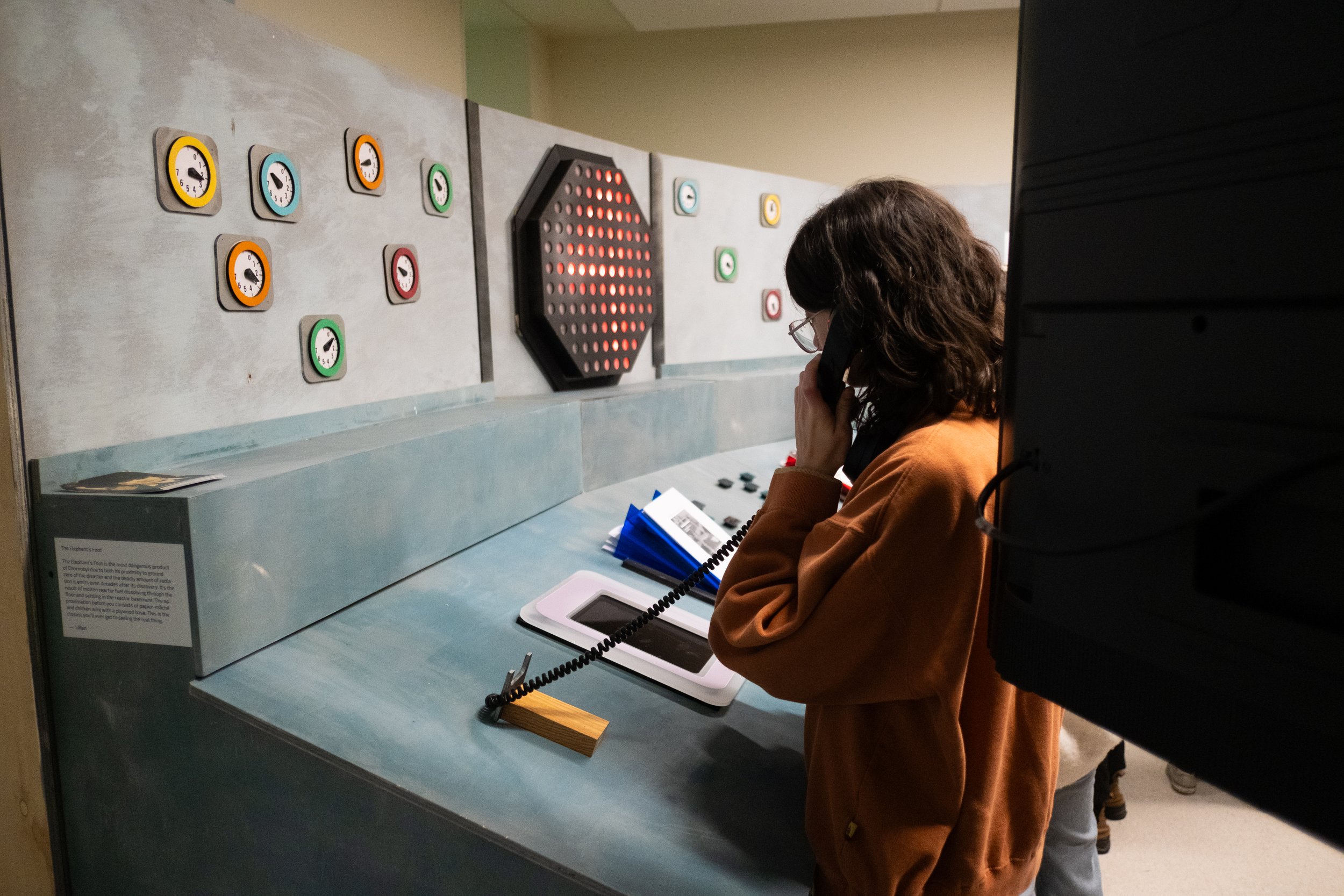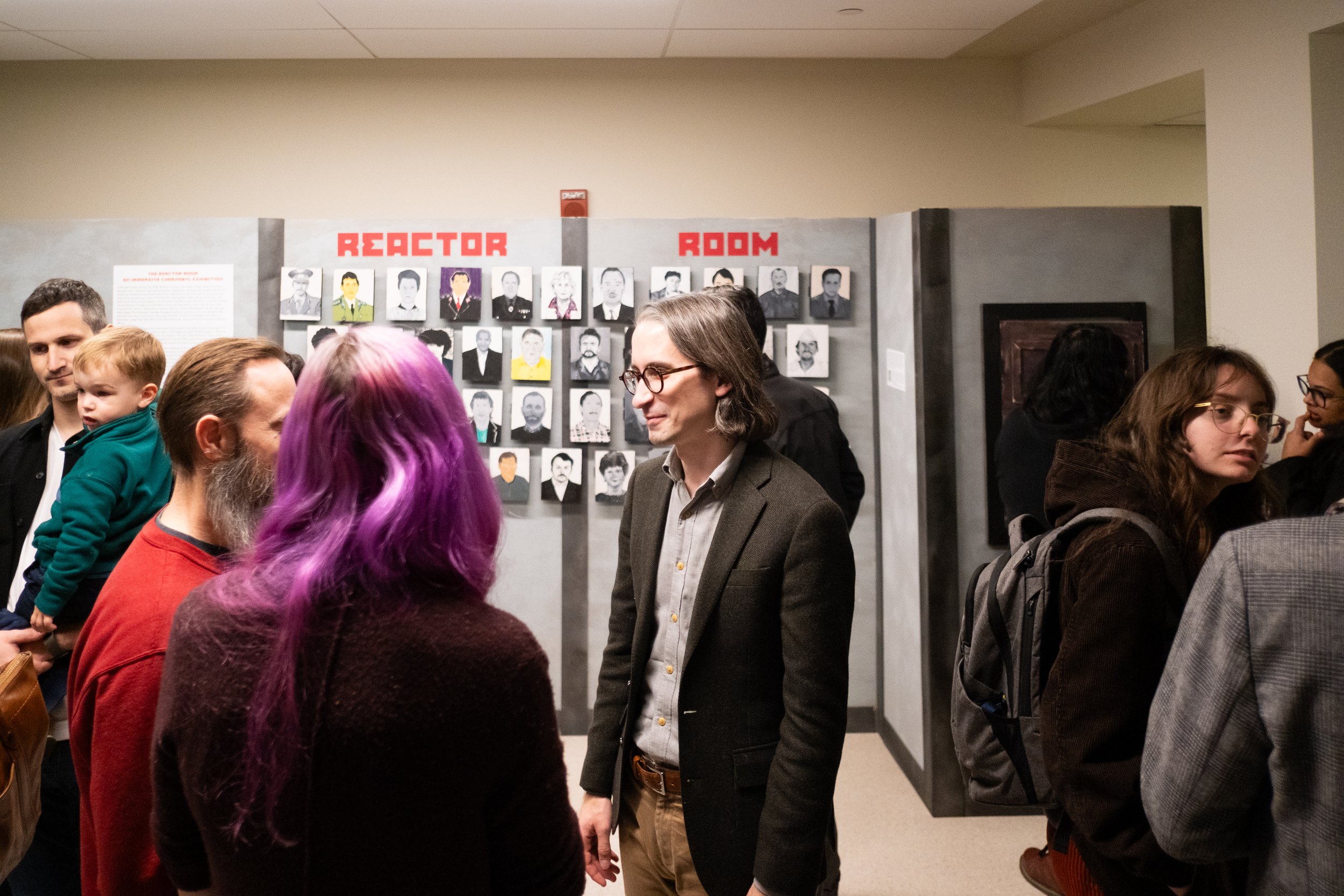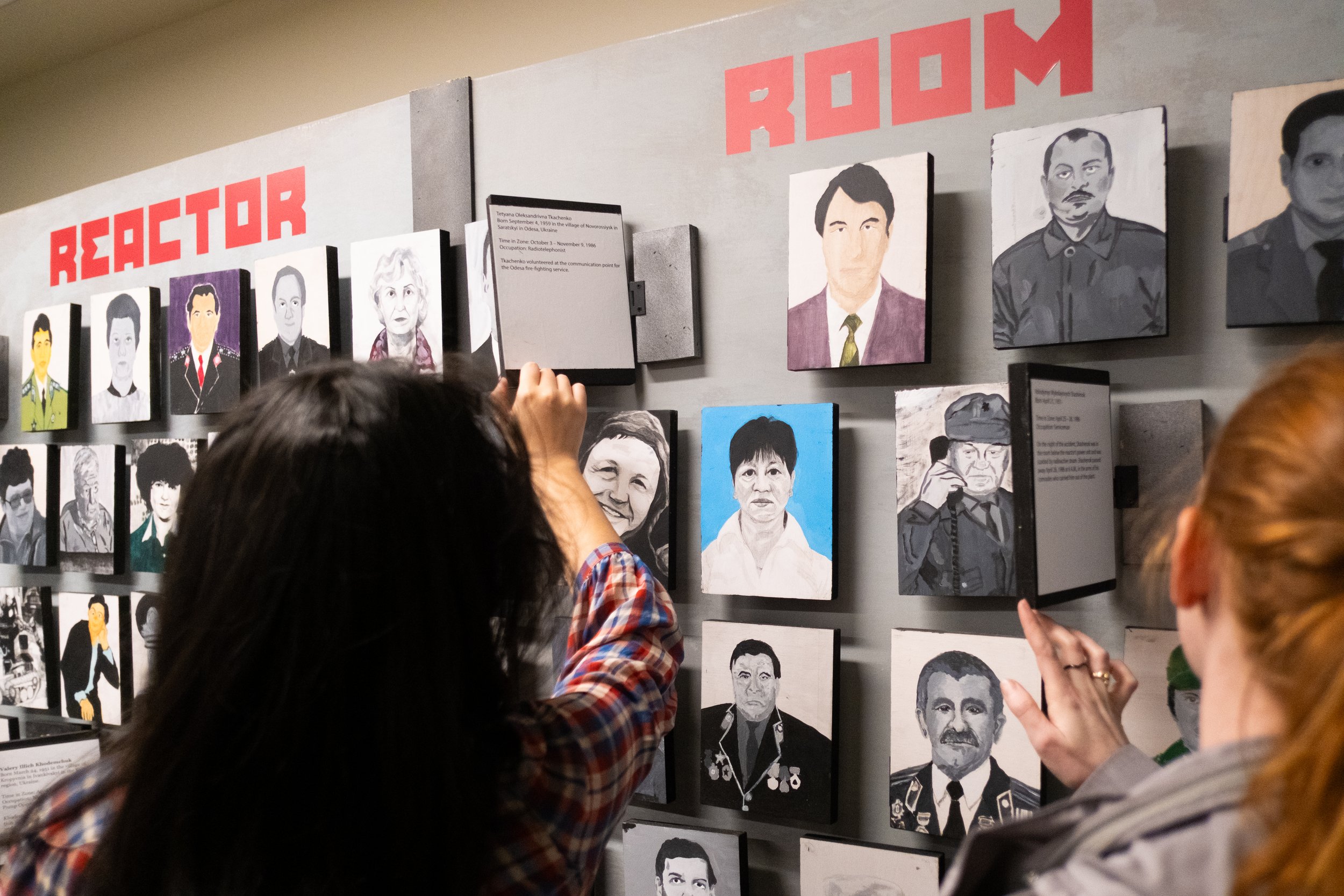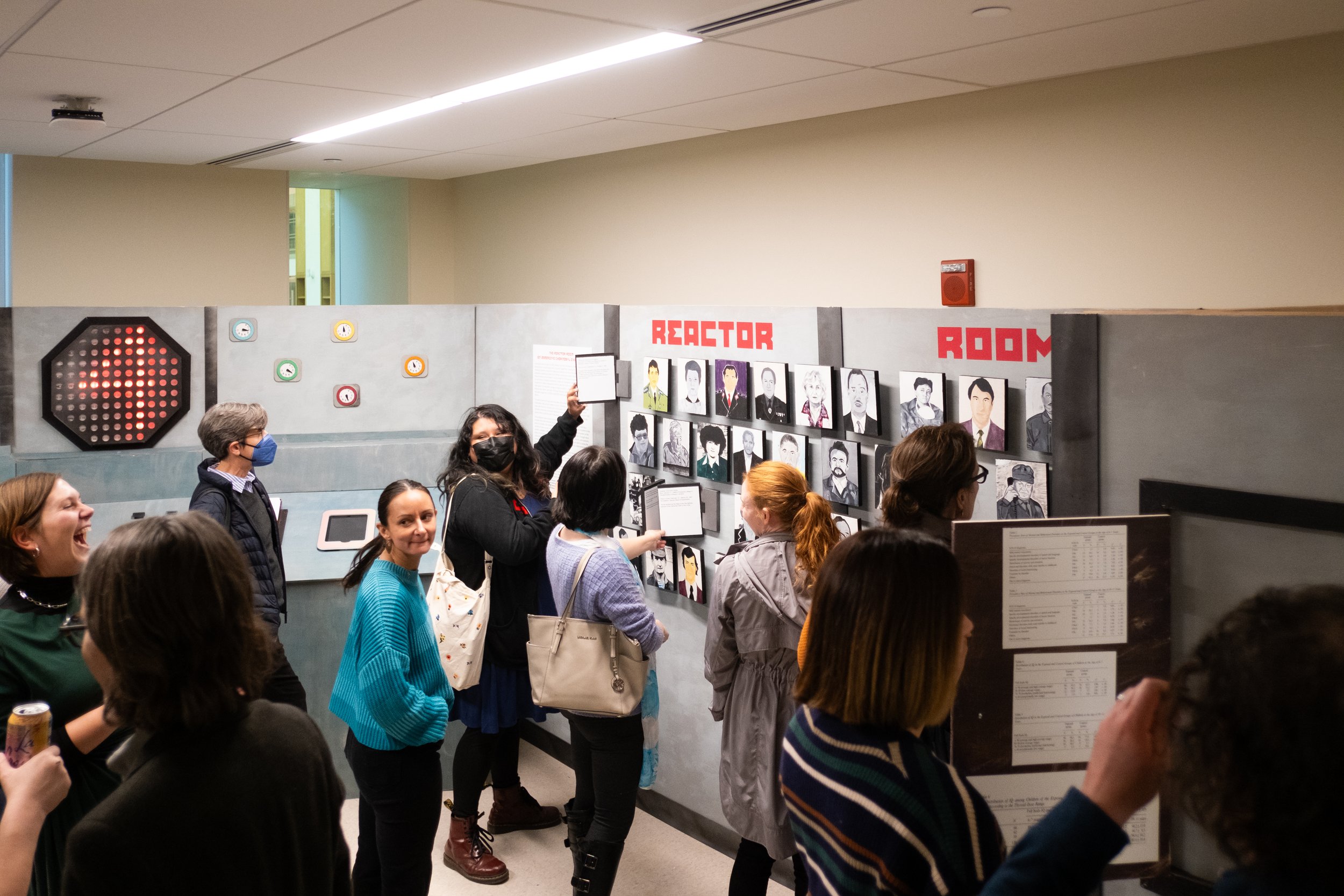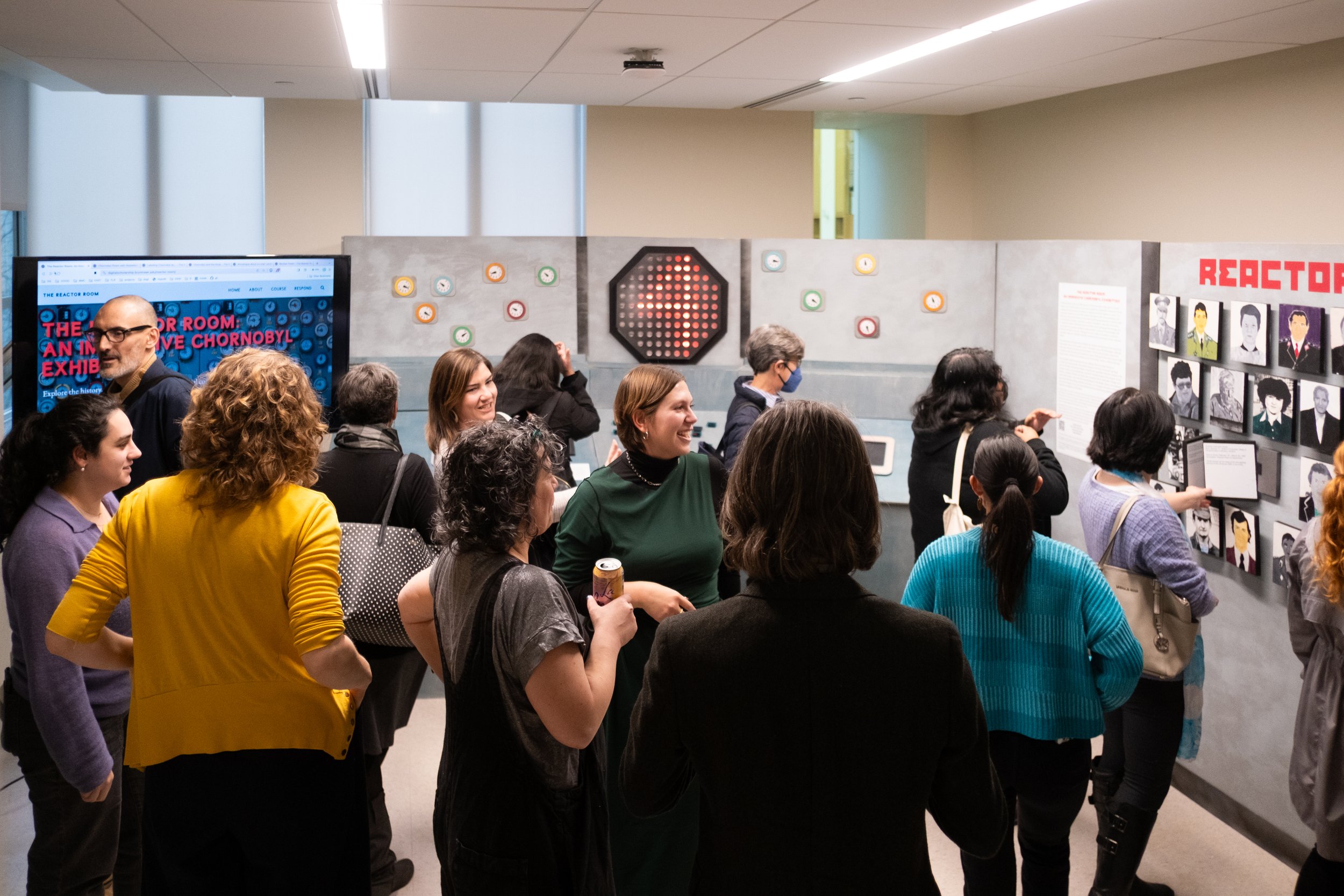STUDENT PROJECTS
Russian Language
The following videos were produced by my students as part of oral exam and video project assignments in various Russian classes. Use the tabs on the sides or the carousel on the bottom to scroll through the videos, and be sure to watch in HD (when possible).












Literature & Culture
Energy Afterlives
This Scalar book features the work of students in my and my colleague Selby Hearth's courses from the fall 2023 360º cluster Energy Afterlives and from the summer 2022 iteration of the STEM in the Liberal Arts Fellows Program at Bryn Mawr College. It provides resources related to coal, oil, and nuclear energy. In studying humanity’s relationships with coal, oil, and nuclear energy sources, students collectively built this Scalar book. From the geology courses, students contributed a selection of geologic objects they have worked with, data analyses they have conducted, samples they have taken from field sites, and conceptual diagrams. Their goal with these contributions is to synthesize their work on the geology of coal, oil, and nuclear energy and to connect it with their writings from the arts courses. These reports and projects from the latter describe and analyze works regarding the three energy sources that did not appear on our syllabus. They explore a wide range of materials and the intersections between the arts, humanity, nature, and energy.
The Reactor Room:
An Immersive Chernobyl Exhibition
The Reactor Room is a digital installation featuring the work of students from my course on the Chornobyl nuclear disaster (Fall 2023 Bryn Mawr College, Spring 2020 Swarthmore College). This interactive exhibition seeks to facilitate public engagement with the catastrophe and its associated mythology. Individually, these projects are snapshots that reflect the fragmented narratives and memories of Chornobyl. Together, they invite you to become an active participant in the study of Chornobyl.
All photos from Reactor Room opening by Aaron Windhorst, Bryn Mawr College
RUSS014. The 20th-Century Russian Novel: Revolution, Terror, Resistance
This Scalar book features the work of students in my course RUSS014 The 20th-Century Russian Novel: Revolution, Terror, Resistance (Fall 2020) at Swarthmore College and provides resources on various major writers. As part of our efforts to understand the Russian Novel’s significance across the twentieth century and into the twenty-first century, students in RUSS014 collectively built this website using Scalar. They practiced different skills and writing styles to complete four scaffolded writing assignments: an author biography (encyclopedic), annotations (editorial), an analysis of a short story or essay or a close reading (literary criticism), and an essay (public writing/criticism).
RUSS005. Contemporary Culture
Back to the Future is a digital exhibition featuring the work of students in my course RUSS005 Back to the Future: Contemporary Russian Culture & Society (Fall 2020) at Swarthmore College. These student-generated exhibit-pages explore various "nodes" in the post-Soviet world.
RUSS037/237. Crime or Punishment:
Russian Narratives of Incarceration
As part of an effort to understand the collection of texts that makes up Russia’s long tradition of prison narratives, students in Bryn Mawr College's Russian Narratives of Incarceration (2021) designed this Scalar book. It features a range of essays in different genres.
In previous iterations of this course taught at Swarthmore College (2019 + 2021), students designed this StoryMap (above). With the exception of some editorial revisions, all commentary on this map was been produced by students in RUSS037 (2019 + 2021). With the exception of some editorial revisions, all commentary on this map was been produced by students in RUSS037 (2019 + 2021). They were tasked with selecting one text from the syllabus and one to be read on their own.
This podcast (above) was produced by a student in RUSS037. It features an interview she conducted with her grandfather about his family’s experiences with Soviet prisons, as well as his work with Voice of America. The collection of found poetry (below) “incorporate[s] a number of the various texts” from the same class in a creative fashion. As the student-author puts it, “As we have discussed in class, the tradition of Russian prison literature is strong, as authors draw on the techniques and structures of those before them. In the gulags, too, poems and entire novels were memorized and recited while in prison. Using these texts as the basis of my project seemed to be an appropriate way of taking the idea of literary tradition one step further.” While hovering over the image, use the various buttons to zoom in or out or to open the PDF in a separate window.

